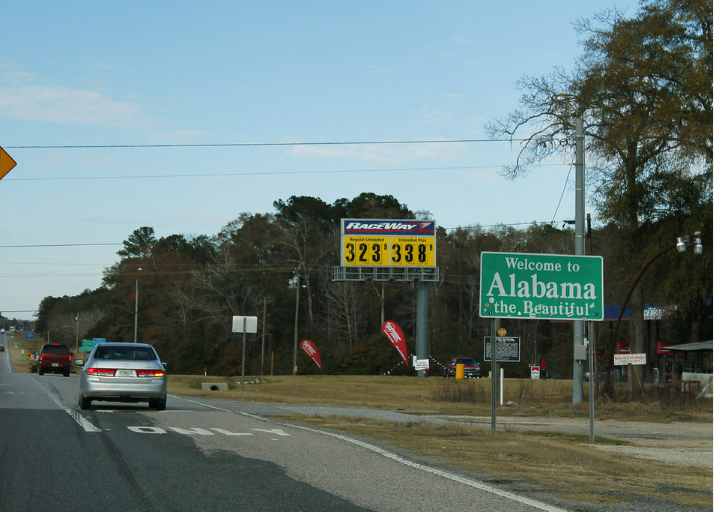
Alabama drivers need to be aware of the state’s car insurance laws to ensure they are compliant. In Alabama, all drivers are required to have a policy with a minimum amount of liability coverage. This regulation is designed to protect you from the financial impact of an accident. Driving without this minimum coverage is illegal, and if you are found at fault in an accident without it, you could be responsible for covering damages or injuries out-of-pocket.
Car insurance laws in Alabama
Almost every state mandates a minimum level of insurance coverage for drivers, and Alabama is no exception. Although there are various car insurance options available in Alabama, it is crucial to understand the mandatory requirements. The state’s minimum car insurance liability limits are often expressed as 25/50/25, which breaks down to:
- $25,000 for bodily injury liability per person
- $50,000 for total bodily injury liability per accident
- $25,000 for property damage liability per accident
Liability insurance in Alabama
In Alabama, liability insurance is required for all drivers and includes both bodily injury and property damage coverage. Bodily injury coverage helps cover the costs of injuries and lost wages for other drivers or passengers involved in accidents you cause, while property damage coverage pays for repairs to the other driver’s vehicle. It’s important to note that this coverage does not apply to your own injuries or vehicle damage.
Minimum liability coverage might not be enough to cover all expenses if you’re at fault in a major accident. To ensure better protection, consider increasing your coverage limits. For additional security, you might also opt for comprehensive and collision insurance, which together are known as full coverage and help cover damages to your own vehicle. Adding personal injury protection (PIP) can further assist with medical expenses for you and your passengers, regardless of fault in an accident.
Is Alabama a no-fault state?

Alabama operates under a fault-based system for car accidents, meaning the driver who causes the accident is responsible for covering the other driver’s expenses through their insurance. Fault is determined by police and insurance companies based on available evidence. The at-fault driver’s insurance pays for the other driver’s damages, and the at-fault driver is liable for any costs exceeding their insurance coverage limits.
In Alabama, fault can be shared between drivers. For instance, one driver might be deemed 25 percent responsible for the accident, while the other driver is 75 percent responsible.
Alabama is one of only five states that follows contributory negligence laws. Under this system, if you are found to be even 1 percent at fault for the accident, you cannot sue the other driver. Only if one driver is 100 percent responsible can the other party pursue legal action.
Penalties for driving without insurance in Alabama
Driving without insurance in Alabama is a violation of state law and carries significant penalties. For a first offense, you may face a $500 fine, a 45-day registration suspension, and a $200 reinstatement fee. For a second or subsequent offense, the penalties increase to a fine of up to $1,000, a four-month registration suspension, a $400 reinstatement fee, and potentially up to six months of license suspension.
Additional consequences for more severe offenses may include jail time and the requirement to carry an SR-22 certificate, also known as a “Certificate of Financial Responsibility.” This document proves that you maintain car insurance meeting the state’s minimum coverage requirements.
Additional auto insurance coverage options in Alabama
While Alabama’s minimum requirement is liability coverage, there are several additional options to enhance your protection:
- Comprehensive Coverage: Protects against non-collision events such as theft, animal collisions, and hail damage.
- Collision Coverage: Covers damages to your vehicle from collisions with other vehicles or objects.
- Loan/Lease Payoff (Gap Coverage): Essential for financed vehicles, this covers the difference between your car’s actual cash value and the remaining loan balance if the car is totaled.
- Medical Payments (MedPay): Helps cover medical expenses for you and your passengers after an accident.
- Rental Car Reimbursement: Covers the cost of a rental car if your vehicle is in the shop for repairs. This may not apply if your car is still drivable.
- Roadside Assistance: Provides support for battery jumps, towing, and flat tire repairs. Coverage details may vary by insurer.
- Uninsured Motorist Bodily Injury: Recommended for protection against injuries caused by drivers with no insurance who cannot cover your damages.
